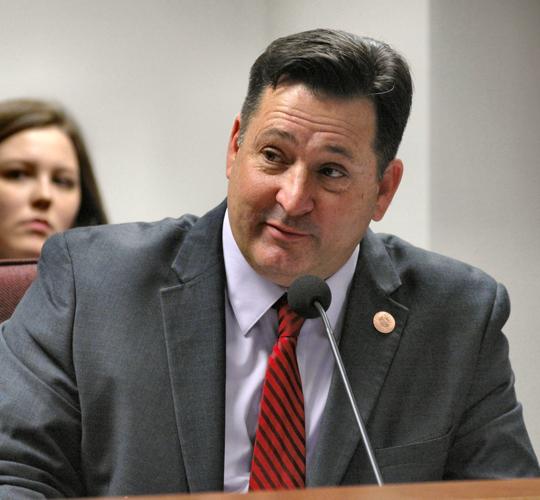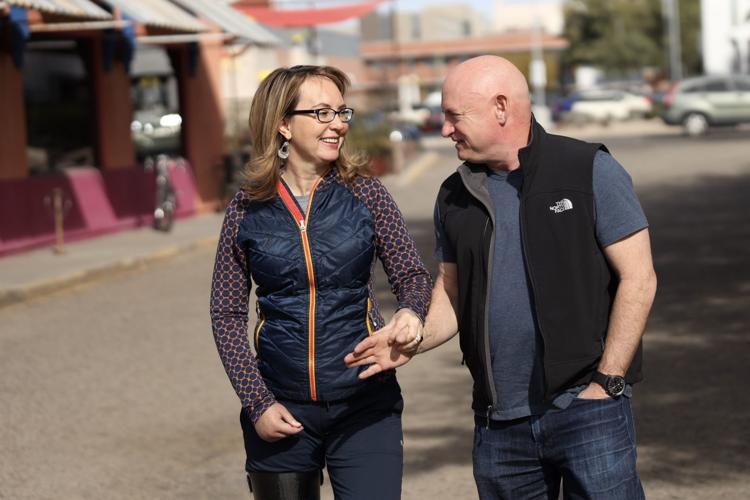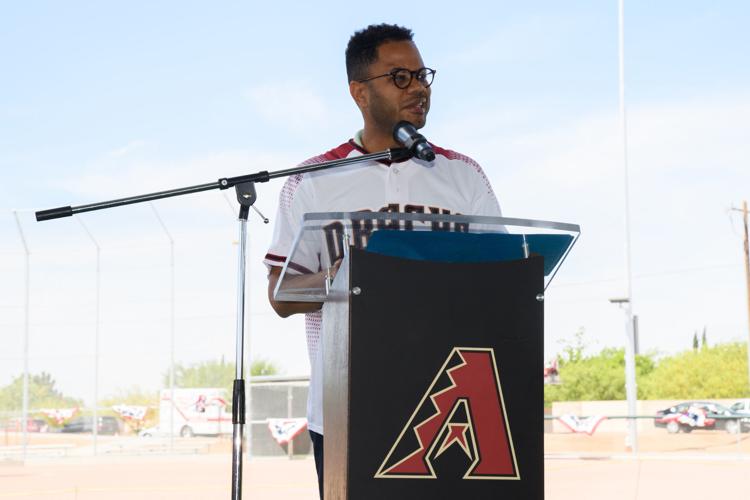When the Legislature passed its Drought Contingency Plan in a deadline rush last month, there was a lot of talk about getting additional federal grants to help Pinal County farmers quickly transition back to pumping groundwater.
The state, supporters said, could serve as a “backstop” to that federal money, or offer a “bridge loan,” spending now in amounts that could be covered later by federal grants.
This idea was even written into a “legislative intent” section of the law: “Because the timing for the issuance of grants from federal agencies is uncertain, the legislature may consider other appropriations to be made available to the irrigation districts for these construction and rehabilitation projects after reasonable attempts are made to secure the funding and that federal monies were not provided timely to carry out the purposes of the fund.”
I guess that when they said “timely,” they meant that federal grants should be forthcoming in two weeks or less.
I say so because Rep. David Cook, a Globe Republican, has introduced a bill that would give an additional $20 million appropriation to Pinal County irrigation and water conservation districts. The bill, HB 2590, is a simple appropriation, not framed as a down payment or loan by the state to be paid back by federal grants.
“That’s the remaining funds needed to complete this part of DCP,” Cook told me.
He explained that the rules have not even been written yet for the federal grants that Arizona irrigation districts plan to apply for. There’s no time to wait for the rules to be written, applications submitted, then grants awarded, Cook said.
“All of that is uncertainty, but what we need to have is certainty,” he said.
Of course, legislators knew all of this before the drought plan was signed into law Jan. 31. As it was, the governor presented a plan earlier that would have appropriated $5 million to help the Pinal County farmers with their groundwater transition. The Legislature then pumped that up to $9 million. They deliberately did not go further, choosing instead to explain the intent to go after federal money and maybe provide a state backstop in the meantime.
“I feel like we had this fight and they lost,” Rep. Kirsten Engel, a Tucson Democrat, told me. “We appropriated as much money as people felt was warranted, and it was not an inconsiderable amount of money going to groundwater infrastructure.”
Indeed it wasn’t. But a key part of the politics of the Drought Contingency Plan was that each chamber, the House and Senate, needed to pass the bill with a supermajority of two-thirds of both chambers voting yes. This would allow the legislation to have an emergency clause and take effect immediately.
In order to get all those votes, Republican legislative leaders needed Democrats to vote yes. And once this was all hashed out, after long hearings, Democrats did.
“Those Democratic votes would not have been there, had there been an additional $20 million in there for groundwater infrastructure,” Engel said.
But now, of course, Republicans don’t need Democratic votes to pass Cook’s simple appropriation. They just need a majority.
It remains to be seen if Republicans have the stomach for handing over $20 million more now. It would seem natural that, if this “timely” spending is to happen, it would be on the condition that the state gets paid back with whatever federal grants Arizona can get for the same purpose.
Stratospheric fundraising
By my rough calculations, Mark Kelly is on track to raise about $380 million in his campaign for U.S. Senate.
How’s that? Well, Kelly raked in an astounding $604,000 in online donations during the first 24 hours of his campaign, from 6 a.m. Tuesday to 6 a.m. Wednesday. Multiply that by the roughly 21 months to go before the general election, and you’ve got an American record haul!
This is nonsense, of course. Kelly won’t raise as much every day as he did the first, and he may not even win the Democratic nomination and get to the general election. But the impressive haul will serve as a warning to all comers that Kelly is likely to be a massively successful fundraiser, combining his wife Gabrielle Giffords’ longstanding network with his own, as well as the new one they’ve developed as founders of the Giffords Law Center to Prevent Gun Violence.
In approximately the first 36 hours, by the way, Kelly raised $1.1 million through all methods, including checks mailed to the P.O. Box by people who the campaign had called the week before.
Long story short, the 2020 race for U.S. Senate in Arizona is likely to be incredibly expensive for the candidates. U.S. Sen. Martha McSally spent about $21 million during her 2018 campaign, and U.S. Sen. Kyrsten Sinema spent about $24 million, both of which were large sums for Arizona.
Douglas mayor recall
Critics of Douglas Mayor Roberto Uribe have begun trying to recall him from office. Douglas resident Tanya Duarte told me she started the effort because Uribe has not been following the city charter in his management of City Council meetings and because of favoritism by him in the way he manages the city.
The effort really exploded after the council decided not to renew City Manager James Russell’s contract last month. Many residents showed up at council meetings to support Russell.
Duarte said she has collected about 800 signatures, and 569 valid ones are needed to force a recall election. Uribe, who was first elected in 2016, did not answer my call seeking comment Thursday evening. His term expires in 2020.
At Wednesday’s meeting, he told critics that he would not resign, as they were requesting.
Vogt’s new gig
Ted Vogt, a former lawmaker from Tucson, is settling into another new job in the administration of Gov. Doug Ducey.
Vogt took over as director of the Department of Gaming this week after a couple of short-lived gigs in state government. He was executive director of the Arizona Corporation Commission for a brief period last year, until questions were raised about his wife’s job in a public-affairs firm that did work for Arizona Public Service. He resigned from that job in July.
In November, Vogt took over as interim director of state parks after previous director Sue Black was fired. Vogt was replaced by permanent director Robert Broscheid in January. Previously, Vogt served as Ducey’s chief of operations and headed the Arizona Department of Veterans Services.










